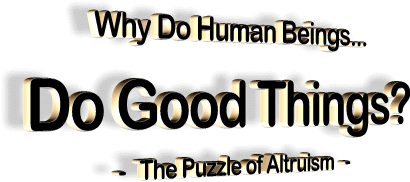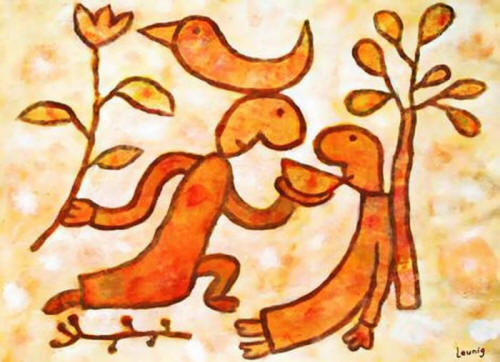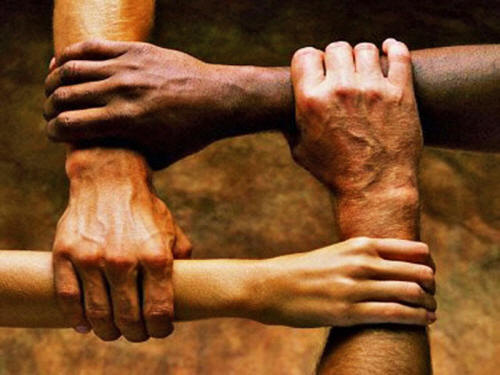|
Altruism isn't always just disguised self-interest. 'Pure' altruism does exist.
Hearing the approach of a train, Wesley Autrey impulsively jumped down to try to save the young man, only to realize that the train was approaching too fast. Instead, he jumped on top of the young man's body and pushed him down into a drainage ditch between the tracks.
The train operator saw them, but it was too late to stop: five cars of the train passed over their bodies.
Miraculously, both of them were uninjured.
Asked later by The New York Times why he had done it, Autrey said:
The question of why human beings are sometimes prepared to risk their own lives to save others has puzzled philosophers and scientists for centuries.
From an evolutionary point of view, altruism doesn't seem to make any sense. According to the modern Neo-Darwinian view, human beings are basically selfish. After all, we are only really 'carriers' of thousands of genes, whose only aim is to survive and replicate themselves.
We shouldn't be interested in sacrificing ourselves for others, or even in helping others.
It's true that, in genetic terms, it's not necessarily self-defeating for us to help people close to us, our relatives or distant cousins - they carry many of the same genes as us, and so helping them may help our genes to survive.
But what about when we
help people who have no relation to us, or even animals?
When we help strangers (or animals), there must always be some benefit to us, even if we're not aware of it. Altruism makes us feel good about ourselves, it makes other people respect us more, or it might (so far as we believe) increase our chances of getting into heaven.
Or perhaps altruism is an investment strategy - we do good deeds to others in the hope that they will return the favor some day, when we are in need. (This is known as reciprocal altruism.)
According to evolutionary
psychologists, it could even be a way of demonstrating our
resources, showing how wealthy or able we are, so that we become
more attractive to the opposite sex, and have enhanced reproductive
possibilities.
Of course, we felt an instinct to help other members of our group, because our own survival depended on the safety of the group as a whole, and because, more indirectly, this would support the survival of our genes.
We don't live in small
tribes of extended family anymore, but we habitually behave as if we
are, helping the people around us as if we are related to them.
Many acts of kindness may be primarily - or just partly - motivated by self-interest. But is it naive to suggest that 'pure' altruism can exist as well?
An act of 'pure' altruism such as Wesley Autrey's may make you feel better about yourself afterwards, and it may increase other people's respect for you, or increase your chances of being helped in return at a later point.
But it's possible that,
at the very moment when the act takes place, your only motivation is
an impulsive unselfish desire to alleviate suffering.
(Although come to
think of it, my parents didn't teach me those things…)
I empathized with the spider as another living being, who was entitled to stay alive just as I was. And I believe that empathy is the root of all pure altruism. Sometimes empathy is described as a cognitive ability to see the world through another person's eyes, but I think it's actually much more than that.
In my view, the capacity for empathy shows that, in essence, all human beings - and in fact all living beings - are interconnected.
At some deep level, we are expressions of the same consciousness.
(As several philosophers of consciousness - such as David Chalmers - have suggested, it may be that rather than producing consciousness, the function of the brain may be to 'receive' or 'channel' a consciousness which exists outside the brain, and which in fact permeates the whole universe. Consciousness may be a fundamental force of the universe, like gravity.)
We can sense their suffering because, in a sense, we are them.
And because of this common identity, we feel the urge to alleviate other people's suffering - and to protect and promote their well-being - just as we would our own.
In the words of the 19th century German philosopher Schopenhauer,
In other words, there is no need to make excuses for altruism. Instead, we should celebrate it as a transcendence of seeming separateness.
Rather than being unnatural, altruism is an expression of our most fundamental nature - that of connectedness.
|



